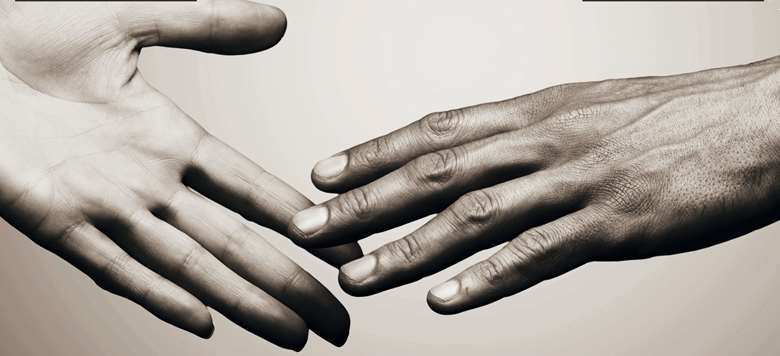One-off Workshop: Second Chances
David Porter
Tuesday, October 1, 2019
In this two-hour workshop, students explore a scenario that looks at the consequences of giving someone a second chance with positive and negative outcomes. With a range of Drama techniques, the exercises invite them to create a character with depth.

Adobe Stock/Billionphotos.com
Learning Objectives
- To work collaboratively in teams
- To create a piece of drama that conveys meaning
- To explore a theme through Drama techniques
Background
Climbing mountains, exploring frontiers, discovering scientific breakthroughs – we often need second, third or more chances to succeed. We learn from the failure, that's how humanity progresses. And in relationships, it's often the same.
Choosing the character
Students need to create a character that relates credibly to another character in a situation where a second chance is needed, which either works or fails. There must be a learning outcome for every character, for example:
Man, middle aged, in and out of jobs, drinks a lot, addicted to gaming machines, feels inadequate ▸ relates to: Partner, spouse, girl/boyfriend, parent, son, daughter, sibling, friends, employers, neighbours.
Teenager, not great at school, prefers to watch movies all day, once good at sports, dislikes being ordered about ▸ relates to: parent(s), friends, teachers, school staff, siblings, grandparents, cousins, boy/girl the teenager likes but the feeling is not mutual.
Woman, in 60s, has had a hard life, lost a child when young, good at organising, suffers from a heart condition ▸ relates to: Children of two relationships, grandchild, employer, neighbour, aged parent, old friend.
Warm-up (15 mins)
- In pairs, parent and child, A forgives B for a minor error of judgement
- In pairs, teacher and child, as above
- In pairs, partners, as above
- Repeat, but with no forgiveness.
Process of the workshop development
- Teacher-led discussion: this focuses on second chances, drawing on any student experiences they are willing to share (5 mins).
- Outline of activities:
- In small groups of 4 or 5, they are asked to choose a character and decide how each one will relate to the others in the group
- They will decide on a scenario from the list or make one of their own
- They must fit the characters convincingly into the scenario or vice versa.
- Tasks and timings: Each group devises three scenes to explore the chosen scenario (30 mins). They must use at least two techniques from: mime, still images, narrator in role, flash-back or forward, hot-seating, direct address to audience, marking the moment, moment of truth or conscience tunnel. They will share at least two scenes with the class.
Possible scenarios:
- A bad/stupid decision in the past after a dilemma. A time machine or fairy godmother makes it possible to go back in time and face the dilemma again. Is there a different outcome?
- Somebody lets somebody else down over a big issue. Driven by conscience that person tries to make good, apologises and is given a second chance. Is there a different outcome?
- Through fear and cowardice somebody remains silent when they should have spoken up; somebody else has the courage to speak up. There are consequences for the silent one. What is the outcome?
- Somebody is constantly forgiven for minor mistakes. Then one day that person slips up badly. Everybody wants to give up on him/her except one person. Why? What is the outcome?
- Somebody given a second chance yesterday fails to give one today. When this is pointed out, it is too late. Why? What is the outcome?
- No second chance. Somebody refuses to give another any second chance and lives to regret it. Is there a second chance to give a second chance?
Resources:
BBC Radio 4 Second Chances episodes: http://www.bbc.co.uk/programmes/b007t8vb/episodes/guideAdult
Ideas to translate into teenage prompts: http://www.mayoclinic.org/healthy-lifestyle/adult-health/in-depth/forgiveness/art-20047692
Cross-cutting
If three scenes are created in chronological order, experiment to see if the ending is better dramatically when placed at the start, or vice versa.
Sharing and showing so far
Each group will share two or three scenes (40 mins).
Reviews
Students self-review their work, considering the work of two or three others and the teacher comments on several individuals. If the class uses Drama notebooks, they should summarise their thoughts and what they did in the session for future character use (30 mins).
Following up
Record details of both the scenario and its outcome, and the characters that have begun to be developed. They could be useful in future sessions and/or in exam work to come.
David Porter, former head of performing arts at Kirkley High School, Lowestoft, teacher and onetime children's theatre performer, writes (self-published a novel, short story collection and drama resources) in between senior assessing for A-level drama and theatre, moderating IGCSE drama and examining GCSE drama.

